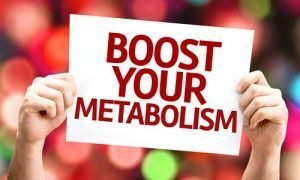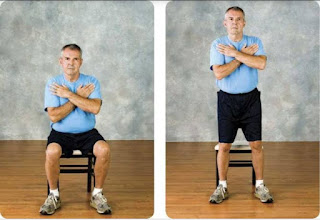Maximize Your Metabolism
Source
Metabolism is a complicated biological function in the human body that the diet and weight-loss businesses frequently exploit. In reality, it's a multibillion-dollar industry that's expanding year after year as individuals seek methods to boost their body's natural capacity to burn fat.
Unfortunately, there isn't a tried-and-true metabolism booster on the market that can achieve what so many people want. There are, however, natural techniques to boost metabolism that do not need a lot of extra time, money, or effort. It is the accumulation of tiny things that results in a more efficient and healthier body that burns more calories and fat.
To begin, it is critical to understand what constitutes your body's metabolism and which aspects of that process are under your control. Simply defined, metabolism is the process through which your body transforms what you eat (food and drink) into energy for all of your daily activities.
Many aspects of a person's metabolic rate, such as age, gender, height, chronic health problems, and heredity, are hardwired and cannot be modified. A 25-year-old male who is 6-feet tall and does not have any underlying medical problems, for example, has a quicker metabolism than a 50-year-old lady who is 5-feet tall and has hypothyroidism. Neither of these individuals has the ability to alter the biological elements that influence.
Now that we know what makes up a person's metabolism, it's time to learn how your body burns calories. There are three primary approaches:
1. Staying Alive. The calories required to maintain your heart pounding, lungs expanding, and all of your body system working are referred to as your basal metabolic rate. This accounts for 60-75 percent for the majority of people.
2. Thermic effect of feeding. Food and drink take energy to digest, and what you consume and digest accounts for around 10% of the calories you burn each day.
3. Activity. This is the amount of energy expended during exercise and movement. It amounts for 15-30% of your daily calorie burn, depending on how active you are during the day.
Because you have the most control over your activity among these strategies to burn calories, moving is essential to keeping a healthy metabolism. For the majority of healthy individuals, the U.S. Department of Health and Human Services advises at least 150 minutes of moderate-intensity aerobic physical activity each week, or an equivalent combination of both, plus at least two resistance-training sessions per week. Consider adding high-intensity interval training (HIIT) to the cardio rotation and progressively increasing the weight during muscle strengthening exercises to enhance the burn during these sessions. Both have the potential to increase the quantity of calories burned during an exercise.
There are also a number of lifestyle choices that may be made to increase your body metabolic efficiency, such as:
. Foods and drinks consumed: Eating a well-balanced diet of nutritious foods with adequate protein for your body size promotes a healthy metabolism. According to experts, the typical healthy individual should take about 0.8 grams of protein per kilogram of body weight (to convert pounds to kilograms divide pounds by 2.2). Protein gives you energy, helps you retain muscle mass (which burns more calories than fat mass), and keeps you satisfied so you don't overeat. The Institute of Medicine advises that males drink around 13 cups of fluid per day and women drink approximately 9 cups per day; these quantities should be increased during exercise or while working in a high heat environment. Water, like protein, may help keep you feeling full and prevent overeating. It also aids digestion and other body functions that aid in metabolism.
. NEAT movement: Non-exercise activity thermogenesis, or NEAT, is a type of movement that can help burn more calories and keep the metabolism burning throughout the day. Activities like as walking the dog, cleaning the home, or playing with your children are examples of NEAT movement.
. Stop stressing; start sleeping: Chronic stress and sleep deprivation can disrupt several of the body's functions, including metabolism. When you are worried or sleep deprived, your body produces the hormone cortisol, which can lead to a slowed metabolism. Furthermore, when you are stressed or exhausted, you may lack the energy or interest in exercising, which reduces the number of calories you burn each day. Make time for relaxation and self-care, utilize breathing and meditation to combat stress, and develop a healthier nighttime routine to guarantee you receive at least seven to eight hours of restful sleep.
While metabolism is a complicated bodily function that is unique to each individual, there are simple habits and activities that can encourage a higher calorie burn and help you live a healthier and happier life. To achieve a safe and natural metabolism boost, try following one or more of the lifestyle practices listed above.





Comments